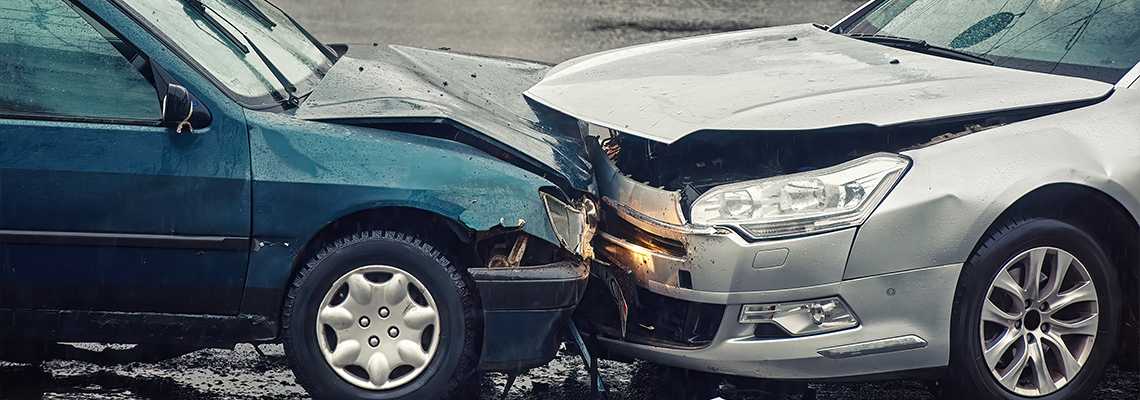
Large commercial trucks can be an intimidating presence on the highway, and collisions involving them often have devastating consequences.
At The Tourigny Law Firm LLC, we have represented many clients who have been seriously injured in truck accidents. We understand how complicated these cases are, particularly when overloaded cargo is a factor.
If you've been injured in an accident involving a commercial truck, it's essential to know your rights. Proving that an overloaded truck caused your injuries requires a specific legal strategy, and ours is here to help. Licensed to practise in both Kansas and Missouri, our attorney serves clients in Kansas City and the surrounding areas.
What Constitutes an Overloaded Truck?
Federal and state regulations set strict limits on how much weight a commercial truck can carry. These rules are not arbitrary; they are based on safety standards designed to protect everyone on the road. A truck's weight affects its ability to stop, turn, and maintain stability.
An overloaded truck exceeds the maximum gross vehicle weight or the axle weight limits set by law. These limits are typically around 80,000 pounds for a standard tractor-trailer, but can vary based on the truck's configuration and the roads it travels on.
Weight is not just about the total amount of cargo. It also involves how that cargo is distributed. Improperly balanced or poorly secured loads can shift during transit, making the truck unstable and difficult to control, even if it is technically under the overall weight limit. This instability can lead to rollovers, jackknifing, or the driver losing control, all of which can cause catastrophic accidents.
The Dangers Posed by Overweight Trucks
An overloaded truck is a significant hazard on the road. The excess weight puts immense strain on the vehicle's essential systems, creating a recipe for disaster.
Increased Stopping Distances
A heavier truck requires a longer distance to come to a complete stop. The brakes are designed for a specific maximum weight. When that weight is exceeded, the brakes can overheat and fail, a condition known as "brake fade." In the event of a sudden traffic stop or emergency, the truck driver may not be able to stop in time to avoid a collision.
Tire Blowouts
Overloading places excessive stress on tires. This can cause the tires to overheat and blow out, leading to a sudden loss of control. A tire failure on a massive, heavy vehicle moving at highway speeds can cause the truck to swerve into other lanes or roll over, endangering every driver nearby.
Reduced Maneuverability
Heavy loads make a truck less responsive. The driver will have a harder time steering, changing lanes, or reacting to road hazards. The high center of gravity on an overloaded truck also increases the risk of a rollover accident, especially on curves, ramps, or during sudden evasive maneuvers.
Strain on Suspension and Frame
The truck's chassis and suspension system are built to handle a specific amount of weight. Exceeding this limit can cause critical components to fail. A broken axle or a cracked frame can lead to a complete loss of vehicle control, often with tragic consequences for others on the road.
How to Prove Negligence in an Overloaded Truck Accident
If you were injured in an accident caused by an overloaded truck, proving negligence is the key to your claim. Negligence means that someone failed to exercise a reasonable level of care, and this failure directly caused your injuries. In a truck accident case, multiple parties could be held responsible.
Identifying the Responsible Parties
Unlike a typical car accident involving two drivers, a commercial truck accident can have several at-fault parties:
The truck driver: The driver may have knowingly operated an overweight vehicle or failed to properly inspect the load.
The trucking company: The company has a duty to maintain its fleet, properly train its drivers, and follow all safety regulations. They may have encouraged overloading to increase profits or failed to implement proper checks and balances.
The shipper or loader: The company that loaded the cargo onto the truck is responsible for doing so correctly and for verifying the weight. If they overloaded the trailer or imbalanced the cargo, they can be held liable.
The mechanic or maintenance company: If brake failure or another mechanical issue contributed to the accident, the party responsible for the truck's maintenance could be at fault.
Gathering Evidence to Support Your Claim
To build a strong case, we need to gather specific evidence. This is often where having a lawyer on your side becomes essential. Key pieces of evidence include:
Weigh station records: These documents can provide direct proof that the truck was over the legal weight limit.
Driver's logs: These logs show the driver's hours of service, which can indicate if fatigue was also a factor.
Bill of lading: This document details the cargo being carried, including its declared weight.
Police and accident reports: The official report often contains initial findings and witness statements.
Black box data: Most modern trucks have an event data recorder (EDR), which records information about speed, braking, and other operational data just before a crash.
Maintenance records: These can show if the trucking company was negligent in servicing the vehicle's brakes, tires, and suspension.
By collecting and analyzing this information, I can piece together the events that led to the accident and demonstrate how the overloaded cargo was a direct cause of your injuries.
Laws Governing Overloaded Trucks in Kansas and Missouri
Kansas and Missouri have specific laws governing truck size and weight, which correspond with federal regulations. If these laws are violated, it can serve as direct evidence of negligence in a personal injury lawsuit.
In Kansas, the law sets the maximum gross vehicle weight at 80,000 pounds, with specific limits for single and tandem axles. The state has weigh stations, and law enforcement can require a truck to be weighed at any time if there is reason to believe it is overweight.
Similarly, Missouri law caps the gross weight at 80,000 pounds and enforces strict axle weight limits. Trucking companies can apply for special permits for overweight loads, but they must adhere to specific routes and safety protocols. Failure to obtain a permit or adhere to its conditions constitutes a violation that can establish negligence.
In a lawsuit, proving that a trucking company or driver violated these state statutes can be a powerful tool. This type of violation is often considered "negligence per se," which means the act itself is presumed to be negligent because it broke a safety law.
Truck Accident Attorney in the Kansas City Area
If you've been injured due to someone's carelessness, the legal process can feel like a heavy burden. We can lift that weight for you. With a seasoned personal injury attorney serving Kansas City, and licensed to practise in Kansas and Missouri, we are deeply familiar with these cases and the distinct challenges they present.
Our firm will manage every detail, from collecting evidence to negotiating with insurance companies, while fighting to secure the compensation you deserve. Your focus should be on your recovery; let us handle the legal details. You are not in this alone. At The Tourigny Law Firm LLC, we are here to be your advocate every step of the way.



